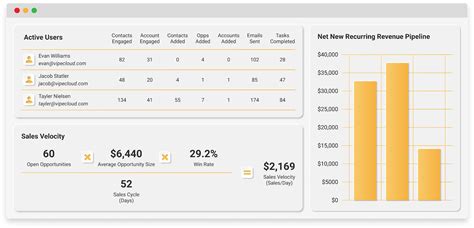How To Keep Track Of Sales Small Business
Ronan Farrow
Apr 01, 2025 · 3 min read

Table of Contents
How to Keep Track of Sales for Your Small Business
Running a small business is exciting, but staying organized can be a challenge. One of the most crucial aspects of success is effectively tracking your sales. Accurate sales tracking provides invaluable insights into your business's performance, helps you make informed decisions, and ultimately contributes to growth. This guide will equip you with practical strategies and tools to master sales tracking, no matter your industry or the size of your operation.
Why is Sales Tracking Important for Small Businesses?
Before diving into the how, let's understand the why. Effective sales tracking offers numerous benefits, including:
- Identifying Top Performers: Pinpoint your best-selling products or services, allowing you to focus your marketing efforts and inventory management.
- Understanding Sales Trends: Analyze sales data over time to identify seasonal fluctuations, growth patterns, and potential issues. This predictive analysis allows proactive adjustments to your business strategy.
- Improving Forecasting Accuracy: Accurate sales data is the foundation for reliable financial forecasting, crucial for securing loans, managing cash flow, and making informed business decisions.
- Measuring Marketing ROI: Connect your sales data to your marketing campaigns to assess their effectiveness. Determine which strategies are generating the highest return on investment (ROI).
- Spotting Problems Early: Quickly identify dips in sales, allowing for swift intervention and preventing more significant losses down the line.
- Making Data-Driven Decisions: Instead of relying on gut feeling, you'll be empowered to make strategic choices based on concrete evidence.
Simple Sales Tracking Methods for Small Businesses
You don't need complex software to start tracking sales. Here are some easy methods:
1. Spreadsheet Software (e.g., Excel, Google Sheets):
This is a readily accessible and cost-effective option. Create a spreadsheet with columns for:
- Date: The date of the sale.
- Customer Name (or ID): For tracking repeat business and customer segmentation.
- Product/Service: The item sold.
- Quantity: The number of units sold.
- Price: The price per unit.
- Total Amount: The total value of the sale.
- Payment Method: Track payments (cash, credit card, etc.) for accounting purposes.
2. Sales Journal or Notebook:
A simple notebook can suffice, especially for businesses with low sales volume. Maintain a consistent format, including the same details listed above for spreadsheet tracking. This manual method is useful for tracking sales in a straightforward manner.
3. Point of Sale (POS) System:
For businesses with higher sales volume or a physical store, a POS system is invaluable. POS systems automate many aspects of sales tracking, providing real-time sales data, inventory management, and detailed reports. Many offer cloud-based solutions for remote access and streamlined data management.
Advanced Sales Tracking Strategies:
As your business grows, consider these strategies to refine your tracking:
- Customer Relationship Management (CRM) Software: Integrate sales data with a CRM system to manage customer interactions, track leads, and analyze customer behavior.
- E-commerce Platforms: If you sell online, leverage the built-in analytics features of platforms like Shopify or Etsy. These platforms often provide extensive sales reports and data visualization tools.
- Accounting Software: Integrate your sales tracking with your accounting software for streamlined financial reporting and tax preparation.
Key Metrics to Track:
Beyond basic sales figures, consider these crucial metrics:
- Average Order Value (AOV): The average amount spent per transaction.
- Customer Lifetime Value (CLTV): The predicted revenue generated by a customer over their relationship with your business.
- Conversion Rate: The percentage of website visitors or leads who make a purchase.
- Return on Investment (ROI): The profitability of your marketing and sales efforts.
By consistently tracking your sales data and analyzing these key metrics, you'll gain valuable insights that empower you to make informed decisions, improve your business strategies, and ultimately achieve sustainable growth. Remember to choose a method that suits your business needs and scale up your approach as your operations expand.
Featured Posts
Also read the following articles
| Article Title | Date |
|---|---|
| How To Lock Kayak To Roof Rack | Apr 01, 2025 |
| How To Heal Chiron In The 12th House | Apr 01, 2025 |
| How To Measure Glass Thickness | Apr 01, 2025 |
| How To Move Out Of State With Joint Custody | Apr 01, 2025 |
| How To Not Blink When Putting Contacts In | Apr 01, 2025 |
Latest Posts
Thank you for visiting our website which covers about How To Keep Track Of Sales Small Business . We hope the information provided has been useful to you. Feel free to contact us if you have any questions or need further assistance. See you next time and don't miss to bookmark.
